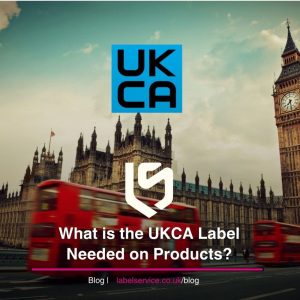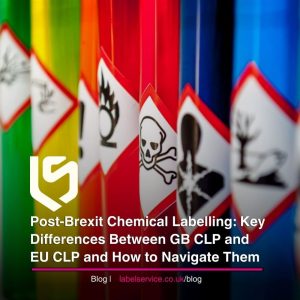Biodegradable has become the buzz word in the world of eco-friendly labelling. Unfortunately, produce stickers – the small stickers we find on most produce – are made from plastic, meaning they are not biodegradable, compostable, nor edible. Plastic produce stickers may seem inconsequential compared to other environmental issues (even if they are annoying) but they can actually create a lot of problems for composters. When accidentally overlooked, they can get into the compost bin and contaminate compost. Compostable produce stickers, on the other hand, are designed to go straight into the compost bin with fruit and vegetable scraps.
PLU stickers are useful to grocery stores and retailers because the code stores information about the fruit or vegetable that they are placed on. PLU codes were added in the 1990’s. These 4-digit codes (sometimes 5-digit for organic produce) make identification easier – They store important information about the produce such as price, type, and origin. They can also sometimes have interesting or creative designs.
These stickers can also help to prevent food waste at large grocery chains, as the PLU codes can be used to track inventory more accurately. Unfortunately produce stickers are often not made from eco-friendly materials – meaning that while they can help reduce waste in some areas, they also introduce waste of their own.
Fruit and vegetable stickers are usually made from plastic. They need to be water resistant to stand up to the storage and selling conditions of fresh produce. They also need to be flexible enough to adhere to round or uneven surfaces.
The most common type of produce sticker is made from petroleum-based plastic, and therefore not biodegradable. Despite good intentions, many of these tiny stickers mistakenly end up at composting facilities. Because they’re so small they are easy to miss when you’re putting fruit or vegetable scraps in your compost bin. They make their way to the composting facility where removing them is difficult, expensive, and time consuming. These tiny stickers also frequently show up in home or community compost bins.
Some might argue that produce stickers are so small that removing them from compost is mostly a cosmetic issue. When reducing plastic waste we shouldn’t only consider the size of the individual item. Imagine the number of people in the UK each consuming fresh fruit and vegetables – it adds up. Not to mention that their small size is a big part of the problem! They’re easy to miss, difficult to pick out by hand, and at industrial composting facilities they can slip past the compost screening equipment.
If we are to combat climate change by increasing composting, we also need to address compost contamination. By dismissing plastic stickers as inconsequential, we risk inadvertently contaminating compost and putting more plastic into the environment.
PLU stickers do not need to be made from plastic! There are several different ideas for eco-friendly stickers that are commonly discussed among sustainable producers. Compostable, laser etching, recyclable, and paper are among them.
Compostable produce stickers do exist. By using compostable stickers, the produce sticker can be composted right along with your fruit or vegetable scraps, you don’t even need to peel them off first.
The efficiency of composting facilities plays a crucial role in developing the circular economy. As we continue to move towards a more sustainable future, it’s important that we are aware of the consequences of plastic use. Even small parts, such as plastic stickers, have the potential to cause big problems for the environment. Widespread use of compostable labels and stickers can significantly reduce compost contamination – bringing us closer to our goal of ending landfills.
















